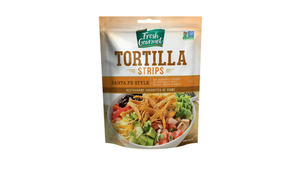Supervalu's Q1 Performance Sparks Concern
MINNEAPOLIS After reporting a 7.2% decline in first-quarter comparable-store sales and a 40.7% decline in net income, analysts last week questioned the ability of Supervalu to rebuild momentum this year. We remain skeptical on Supervalu's ability to recapture share and resonate with the consumer, said Karen Short, a New York-based analyst with BMO Capital Markets. She cited the deteriorating traffic
August 2, 2010
ELLIOT ZWIEBACH
MINNEAPOLIS — After reporting a 7.2% decline in first-quarter comparable-store sales and a 40.7% decline in net income, analysts last week questioned the ability of Supervalu to rebuild momentum this year.
“We remain skeptical on Supervalu's ability to recapture share and resonate with the consumer,” said Karen Short, a New York-based analyst with BMO Capital Markets. She cited the deteriorating traffic patterns — customer counts were down 3% in last year's fourth quarter, followed by a 3.5% decline in this year's first quarter, which ended June 19.
Deborah Weinswig, an analyst at Citigroup, said, “We remain concerned about Supervalu's ability to compete in a highly competitive food retail pricing environment.”
Supervalu itself reduced its sales guidance for the year by $1 billion, to $38 billion, and dropped its projections for identical-store sales to -5%, from previous guidance of -2%, although it maintained earnings guidance of $1.75 to $1.95 per share.
In a conference call discussing the results and projections, Craig Herkert, president and chief executive officer, told analysts the company is optimistic that initiatives already in place and some yet to come will put the company back on the road to positive financial results.
Herkert said his confidence comes from the management team Supervalu is building, which he said is “coming together in a nice way where we can leverage all the programs we've talked about to improve our value proposition and communicate that to our consumers.
“So I do feel good about the prospects for improving our performance in the latter part of the year, and I think that's indicated by our same-store sales guidance for the full year, compared to where we are right now.”
When an analyst on the call pointed out that same-store sales for the past two years are down 10% — “which is a pretty big market-share loss,” the analyst noted — and asked at what point Supervalu would address pricing more aggressively, Herkert replied, “We are being as aggressive as I think we should be. We're focusing our initiatives on improving our overall proposition to our customers, which includes price. We know definitely if we do just price and don't make sure we've got a lot of things working in coordination, it doesn't necessarily change our trajectory.
“So we continue to focus on our fresh proposition, which is something we're really proud of, and we want to continue to improve that and communicate that to our consumers.”
One analyst asked whether, if negative comps continue, there is some point at which the level of supplier support might waver. According to Herkert, “Suppliers are increasingly happy with what we're doing, and my sense from talking to them is they're with us and they love the fact we're beginning to demonstrate we can move real tonnage here.”
Asked whether Supervalu is considering disposing of any groups of stores or a whole division, Herkert replied, “This company will always look at what markets we should be in, where we should be investing, where we should be divesting. And so as we do very extensive sub-market reviews, we may or may not continue look at optimizing our store network either on the growth or divestiture side.”
Total sales in the first quarter dropped 9.2% to $11.5 billion, reflecting both the 7.2 % same-store sales decline and the disposition of several stores. Supervalu said the identical-store sales decline would have been 6.5% without the labor dispute at Shaw's.
Short calculated that Shaw's same-store sales must have been down by about 11% in the quarter to have that impact on the total.
The company said net income for the quarter — down 40.7% to $67 million, or 31 cents per share — was impacted 5 cents per share by the Shaw's dispute; 7 cents per share from its exits from Salt Lake City and parts of Connecticut and Cincinnati; and the transition of Target stores to self-distribution.
Q1 RESULTS
| Qtr Ended | 6/19/10 | 6/20/10 |
|---|---|---|
| Sales | $11.5B | $12.7B |
| Change | -9.2% | |
| Comp-store | -7.2% | |
| Net Income | $67M | $113M |
| Change | -40.7% | |
| Inc./Share | 31 cents | 53 cents |
About the Author
You May Also Like






